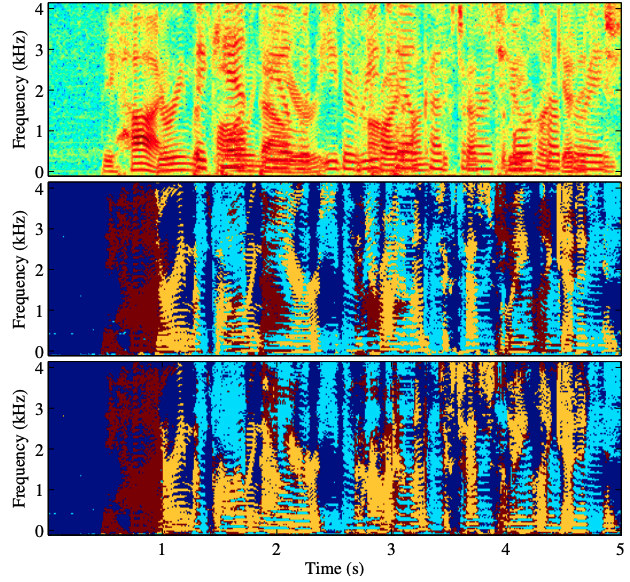Joint Separation and Denoising of Noisy Multi-talker Speech using Recurrent Neural Networks and Permutation Invariant Training
In this paper we propose to use utterance-level Permutation Invariant Training (uPIT) for speaker independent multi-talker speech separation and denoising, simultaneously. Specifically, we train deep bi-directional Long Short-Term Memory (LSTM) Recurrent Neural Networks (RNNs) using uPIT, for single-channel speaker independent multi-talker speech separation in multiple noisy conditions, including both synthetic and real-life noise signals. We focus our experiments on generalizability and noise robustness of models that rely on various types of a priori knowledge e.g. in terms of noise type and number of simultaneous speakers. We show that deep bi-directional LSTM RNNs trained using uPIT in noisy environments can improve the Signal-to-Distortion Ratio (SDR) as well as the Extended Short-Time Objective Intelligibility (ESTOI) measure, on the speaker independent multi-talker speech separation and denoising task, for various noise types and Signal-to-Noise Ratios (SNRs). Specifically, we first show that LSTM RNNs can achieve large SDR and ESTOI improvements, when evaluated using known noise types, and that a single model is capable of handling multiple noise types with only a slight decrease in performance. Furthermore, we show that a single LSTM RNN can handle both two-speaker and three-speaker noisy mixtures, without a priori knowledge about the exact number of speakers. Finally, we show that LSTM RNNs trained using uPIT generalize well to noise types not seen during training.
PDF Abstract
 WSJ0-2mix
WSJ0-2mix